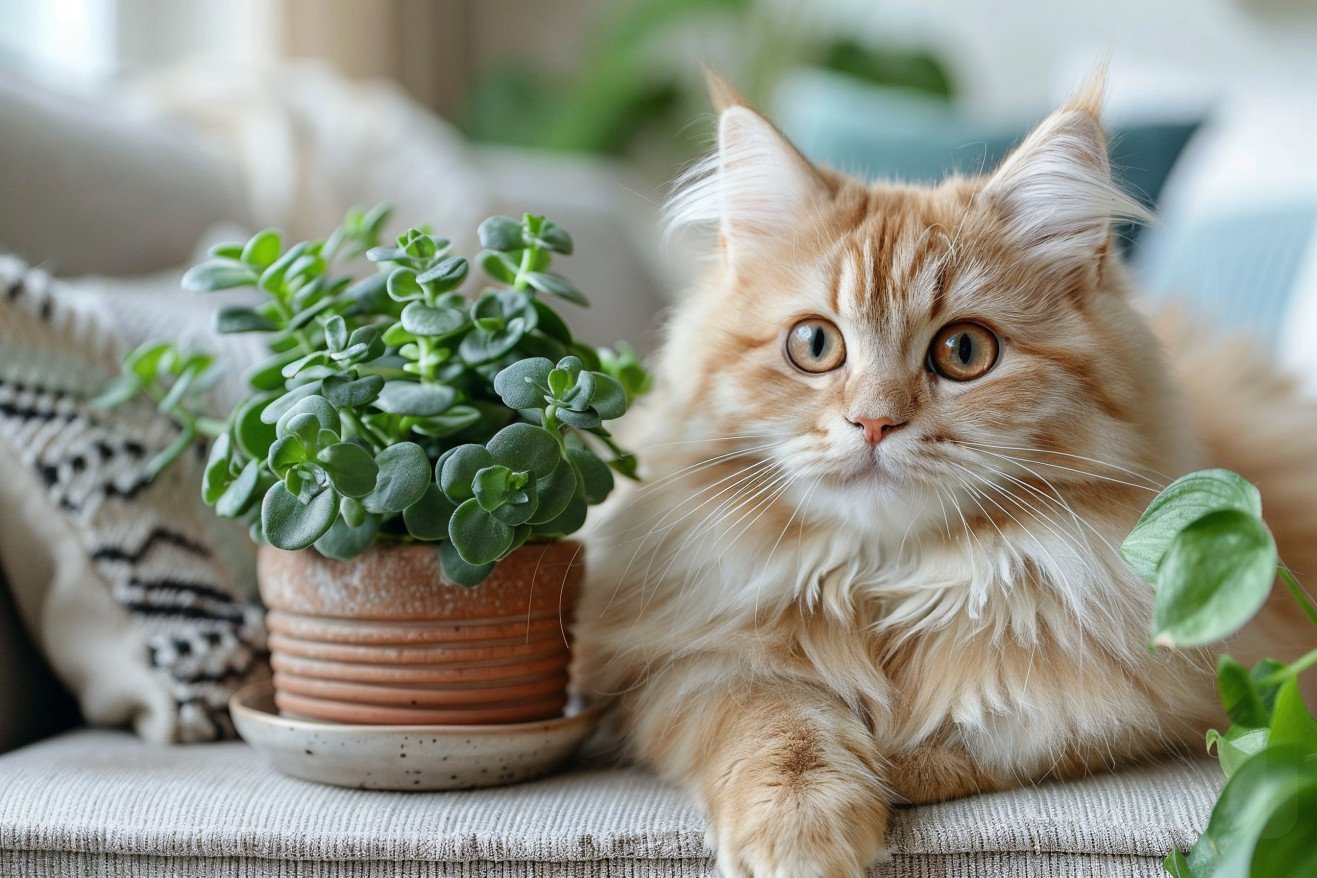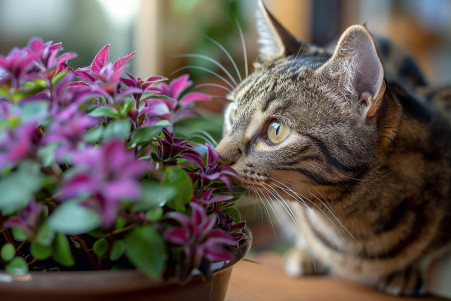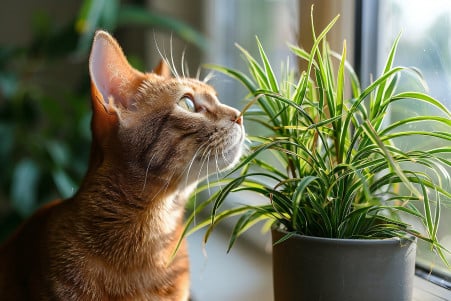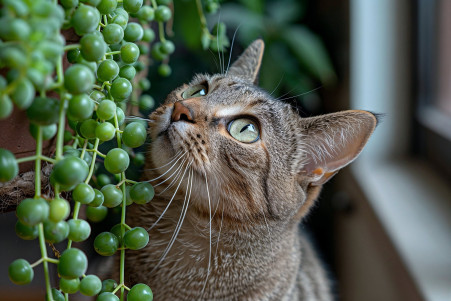Can Cats Eat Jade Plants? A Science-Based Investigation
10 June 2024 • Updated 9 June 2024

If you have a cat and you're thinking about getting a jade plant, you may be asking yourself this question. The good news is that jade plants are safe for cats. In fact, the American Society for the Prevention of Cruelty to Animals (ASPCA) includes jade plants on its list of non-toxic houseplants. That said, while jade plants are not toxic to cats and won't cause serious harm if your cat eats them, their leaves are thick and fibrous, which means that they could cause your cat to vomit or have diarrhea if they eat them.
In this article, we'll take a deep dive into the extensive veterinary research and toxicology studies that not only confirm that jade plants are safe for cats but also put this information into context. This will involve looking at why certain plants are labeled as toxic, how cats' bodies respond to eating things that they can't digest, and how you can keep your house safe for your cat by choosing the right houseplants. Armed with this evidence-based information, you'll be able to decide whether or not to bring a jade plant into your home without putting your cat at risk.
Are jade plants toxic to cats?
Signs and Side Effects of Jade Plant Poisoning in Cats
Eating jade plant leaves can lead to mild gastrointestinal upset such as vomiting, diarrhea, and loss of appetite, says Catster. In extreme cases, cats can also show signs of lethargy, ataxia, and neurological signs, according to veterinary references like WagWalking.
The signs of poisoning will vary based on how much of the plant the cat has eaten and the cat's own sensitivity to the plant. Larger amounts of the plant and higher sensitivity can lead to drooling, retching, abdominal pain, tremors, seizures, and dysphagia, notes Greg.app in its discussion of the related Gollum Jade plant.
Although most cats will recover from jade plant poisoning on their own, it's important to contact a vet if the cat's symptoms don't improve or get worse, according to Catster and other pet health sites. Even though jade plants are classified as having low toxicity, it's important to keep a close eye on the cat to ensure that there are no complications. In many cases, the concerns associated with jade plant exposure can be handled well with the right precautions and care.
What to Do If Your Cat Eats a Jade Plant
If you think your cat has eaten a jade plant, call your vet or a pet poison control hotline immediately. Do not try to make your cat vomit, as this can make things worse.
Veterinary care may include vomiting, activated charcoal, or IV fluids depending on how serious the poisoning is. It’s important to get help as soon as possible and make sure you follow the vet’s advice for decontamination and care.
More Succulents: Toxic and Safe Succulents for Cats
Although jade plants are safe for cats, some other popular succulents like aloe vera, kalanchoe, and euphorbia are toxic to cats. PetMD explains that if cats eat these toxic succulents, they may experience gastrointestinal upset, skin reactions, and in the case of kalanchoe, heart issues.
Meanwhile, The Spruce details a number of cat-safe succulents, including hens and chicks, zebra cactus, burro's tail, echeveria, and haworthia. These succulents are also listed by the ASPCA as non-toxic to cats and dogs.
That said, regardless of toxicity, it's important to know all the plants in your home and make sure your cat doesn't eat any of them, including those that are safe, as Epic Gardening points out. This is especially true when it comes to succulents, so make sure you take the necessary steps to keep your cats safe when you bring succulents into your home.
Balancing Cats and Succulents
If you have a cat, you may want to keep toxic succulents out of your home or remove them entirely, according to Litter-Robot. You can also use deterrents like citrus scents, vinegar sprays, or tinfoil to keep cats away from your succulents, says The Spruce. And you can offer cat-friendly plants like catnip or cat grass to give your cat a safe plant to chew on, according to The Honest Consumer.
To keep your succulents safe from your cat, you can hang your plants, create a plant room, or use enclosed terrariums, according to The Spruce. Make sure to watch your cats for signs of plant poisoning and take them to the vet if you suspect they’ve eaten a toxic plant, says Daily Paws.
Conclusion: How to Protect Your Cat From Jade Plants
Although the Veterinary Emergency Group states that the jade plant is toxic to cats and can cause symptoms like lethargy, weakness, and vomiting if eaten, the information in this article suggests that the situation is more complicated.
According to WagWalking, the most common symptoms of jade plant poisoning in cats are vomiting and depression, both of which are general symptoms of many other feline illnesses. In more severe cases, cats may also experience ataxia, bradycardia, and neurological symptoms such as depression. That said, the article also explains that most cats will recover after eating a jade plant.
If you suspect that your cat has eaten a jade plant, it's important to contact an emergency vet immediately. The vet will be able to tell you what to do next, which may include inducing vomiting or providing other supportive care to address the symptoms, as described by WagWalking.
When bringing new plants into a household with cats, make sure to look up whether or not they are toxic and take steps to prevent accidental ingestion.


